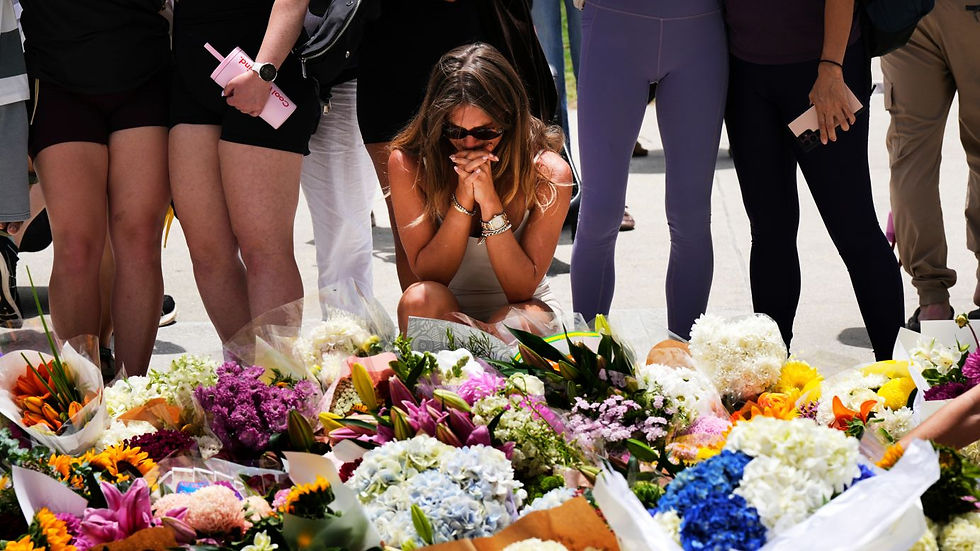I fought in Lebanon. This is what I saw.
- rotemaoreg
- Apr 7, 2025
- 4 min read
Updated: Apr 11, 2025
This article was written by Omer, whose full name is kept in private for his security, who volunteers on LIBRAEL's content team. The opinions expressed are his alone.

I naively thought I would be traveling with a good friend to hike the Camino de Santiago in Portugal. Everything was ready - gear, bags, routes, accommodations. Nothing prepared me for the fact that, suddenly, the ground maneuver in Lebanon would begin after nearly a year of foreplay.
"It’s an unsettling feeling to enter someone else’s home and search through their things, even if those things are meant to kill me."
Since October 7th, we had been stationed in Northern Israel, hearing day and night that we were being held in reserve for "the real thing" - a northern front. That was one of the reasons we hadn’t been deployed to Gaza for an entire year. Training, deployments along the fence, operations near the border - we basically held an operational line for a year. The unit I serve in is a reserve unit, an elite force that luckily trains more than most other reserve units.
And then it happened. A week before my flight, my commander called and said, "Pack your bags, we're going in. Wait for the order." On the eve of Sukkot, I got a call: I had to report in two days to our supply base, gear up, train - and fight.
This was my first war. My grandfather, a Holocaust survivor, fought in the Six-Day War and Yom Kippur War. I was named after a friend of my father, who was killed in Lebanon. I could only hope I’d have a little more luck with this cursed land.
We arrived at our base, geared up, and trained for several days. On the second holiday evening, we drove to Kiryat Shmona, and that was one of the most striking experiences of the war for me. I had been to Israel’s northernmost city several times before, but I had never seen it as a ghost town, bombed and abandoned. The only vehicles on the roads were military.

After a few hours of preparation, we got into the vehicles and crossed the border into Lebanon. In armored vehicles, in the middle of a village, the driver stopped, got out, and said, “Welcome to Lebanon.” In front of us was the view of Kiryat Shmona and its surroundings - except now, it was engulfed in the fires sparked by the rockets.
"Among Spider-Man dolls and teddy bears, there were Kalashnikov rifles and ammunition."
I was in an abandoned village. The enemy had fled, but left behind everything. In many houses we entered, searching for weapons, we found them not only in expected places like hidden caches in basements or workrooms but also in children’s bedrooms. Among Spider-Man dolls and teddy bears, there were Kalashnikov rifles and ammunition. In almost every house, there were Hezbollah intelligence materials, as if the residents themselves were my enemies.
Me? I have nothing against them. As close as they are to me, they are just as distant. Close, almost like the Vietnamese - no connection, and yet it seems their only goal is to destroy me. In the village’s central square, which overlooks all of the Galilee which Hezbollah claims as its own, there was a monument with a map of Israel, where the Galilee was marked in a different color - to remind themselves: “One day, we will take this land.”
After staying in the village and moving from house to house to gather intelligence and weapons, we returned to Israel to prepare for our second entry into Lebanon. The mission: to destroy a Lebanese army building used for gathering intelligence on Metula, the northern Israeli town which had been bombarded during the war, with over half its homes damaged.

We entered in the dark of the night, climbing a hill through fields which apparently used to be agricultural - but now are minefields. We walked until the sunrise, and some hours after we arrived, the commanders told us to get away from the outer wall, as we had been discovered. We didn’t know how, we were very hidden and quiet, but later we discovered that who reported about us to the Lebanese was the UN, which we passed by their base.
After that entry and the building’s destruction, the ceasefire was reached. From then on, we mostly conducted searches in villages - fortunately, without gunfire (a ceasefire, after all). In almost every house, the same routine: pictures of Iranian leaders Khamenei, Khomeini, and Soleimani, as well as Hezbollah Secretary General Nasrallah. Grenades and crates of ammunition in closets - even in children’s rooms. Small missiles in basements. It’s an unsettling feeling to enter someone else’s home and search through their things, even if those things are meant to kill me.
Omer is a financial analyst, a mathematics and philosophy student, and a reservist in the IDF.




Comments